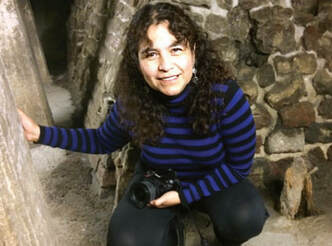Facing Challenges on the Road to Success
Finishing college in the United States represents a challenge for Hispanics, as their life story in most cases is different from that of American students. About 70 percent come from low-income families and nearly half of all Hispanic students are the first in their family to go to college.
Each student has their own story, but all oriented towards a goal, to have a better quality of life and according to the American Council on Education, the opportunities are better for those with higher levels of educational achievement than for those with lower levels. Among the success stories is that of Lorena Medina Martínez, who recently graduated from the University of Alaska Anchorage (UAA) with a master’s degree in Anthropology, and who, for 23 years, has lived in the United States. Medina points out that Archaeology for her is something innate “from a very young age I loved playing to be an archaeologist, I was captivated by encyclopedias and books where archaeological sites or pieces were presented. During my primary, middle and high school education I paid special attention to history classes and related disciplines. By the time I finished high school I knew what I wanted to study.” Many of the Hispanic students do not have enough support to pay for their studies, so it is quite common for them to study and also have a job. “I have had the best of experiences in terms of opportunity, education and academic growth. I had the chance to work for the university’s Anthropology department as a professor’s assistant while studying for my master’s degree, this gave me the opportunity to get involved in the educational part of the faculty. The relationships with the teachers have been extremely rewarding, the support of each one of them never had limits,” says Medina. According to the anthropologist, the University of Alaska, Anchorage is a great option for anyone looking to study any of the careers related to the Colleges it offers, Education, Health and Social Welfare, Arts and Sciences, Business and Public Policy; a Technical and Community College; and a School of Engineering. Medina admits that limited English proficiency can be a challenge for Hispanic students, however, she assures it should not be a barrier to studying “English is my second language, which was at times a challenge during my studies, but it was never problem, since the teachers always helped, guided and supported me in every way possible. My life as a college student in the United States has been extremely rewarding.” She also appeals to the entire migrant community “Let’s realize that the opportunities that someone else has do not limit the work of others. I think sometimes there is a competition among each other, without realizing that we can all get ahead.” Medina, who is currently married to a north American and with whom she has 2 children, recently defended her thesis “Questions of identity during the sixteenth century, the case study on Spanish identity reflected in the archaeological record of the Main Church of New Spain” to obtain her master’s degree in Anthropology and is thinking about doing a doctorate in the future. “In some years I see myself working in archaeological excavations and doing everything that they imply, protecting the archaeological and historical heritage in the best possible way. I will continue to do my research, write articles, and present lectures in the different places where the opportunity exists. I’ll search the best option to get my doctorate degree in Archaeology in a few years, whether in Mexico, the United States or Europe”, concluded Medina. |
